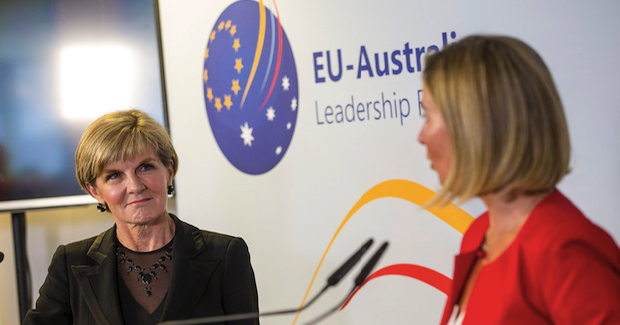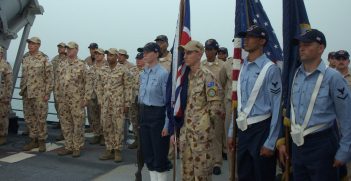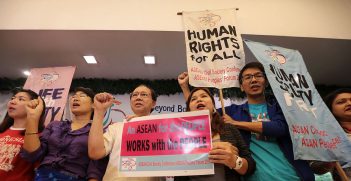The EU and Australia: Natural Partners

There is a tendency in some quarters in Australia to discount the European Union and this has only been amplified by the impending exit of the UK. However, even post-Brexit the EU will remain a significant international player and an important partner for Australia.
The EU is unusual in that it is a great power (or at least a great civilian power) which supports the sort of world order that middle powers like Australia find congenial. It is much more usual for great powers, all window-dressing aside, to do what they wish in their own national interests and see themselves as above or beyond the rules that bind others.
When EU High Representative for Foreign Affairs and Security Policy and Vice-President of the Commission Federica Mogherini launched the EU-Australia Leadership Forum in Brussels last month, she noted that Europe and Australia are geographically very distant but are working daily on many issues as like-minded partners and friends, with the same vision of the way in which the many crises of our time need to be resolved.
Crucially, Australia and the EU have a similar idea of what we’re aiming for in international relations: a similar platonic ideal. This is simply not true of other countries where Australia shares a warm and mutually beneficial relationship, such as China and India or even the United States. We can work together extremely well on a pragmatic basis; yet in the end visions do differ on our aims in international affairs.
By contrast, Europe and Australia are genuinely like-minded on a broad range of issues. As Foreign Minister Julie Bishop put it at the same event: “We share common values, a liberal democratic heritage, a commitment to freedoms, a commitment to the rule of law. We also deeply appreciate the economic power of open markets and liberalised free trade and the prosperity that it can bring.”
Her speech brought tears to the eyes of many of the Europeans present when she spoke of “the bodies of 13,000 Australians, who died during three brutal months in 1917” to “defend our common values and in defiance of tyranny”. The audience was visibly moved when she went on: “So today, we see Europe and the European Union as the heart of the evolution of western liberal democracies. We look to the EU as champions of economic and social progress, of environmental awareness, as upholders of the rules-based international order.”
I wonder how many places in the world an Australian minister for foreign affairs would receive this reception?
Given all of this, it is clear that we shouldn’t let Brexit undermine ties. For example, a rush to negotiate a free trade agreement with the UK—even before it has triggered the long and complex process of exit from the EU—should not undermine ongoing discussions regarding an EU-Australia free trade agreement. The European Union remains Australia’s largest source of foreign investment and its second largest trading partner.
Feelings in the EU are somewhat bruised in the wake of the UK’s decision; this makes it a particularly good time to show support. As Federica Mogherini noted at the Brussels launch in the wake of the UK referendum, “It is very important for us and for our friends in the world to re-state, re-commit, even re-launch, refresh our ties, our common work.”
The EU-Australia Leadership Forum looks to build ties on topics including trade, counter-terrorism and climate action over three years. In particular, a component aimed at emerging leaders will ensure that this close relationship will endure. As High Representative Mogherini noted, nothing can substitute the personal experience of exchanging experience and views: “On that basis, we can build the future of our strong friendship, even if we are geographically so far away but culturally and socially so close to each other.”
Although it is easy to take the EU-Australia relationship for granted, like the far-away cousins we know we should care about more, such ties are precious in international affairs. We need to nurture them.
Melissa Conley Tyler is the National Executive Director of the Australian Institute for International Affairs and Project Leader for the EU-Australia Leadership Forum which was launched by Minister for Foreign Affairs Julie Bishop in Canberra on 19 October.
This article is published under a Creative Commons Licence and may be republished with attribution.





